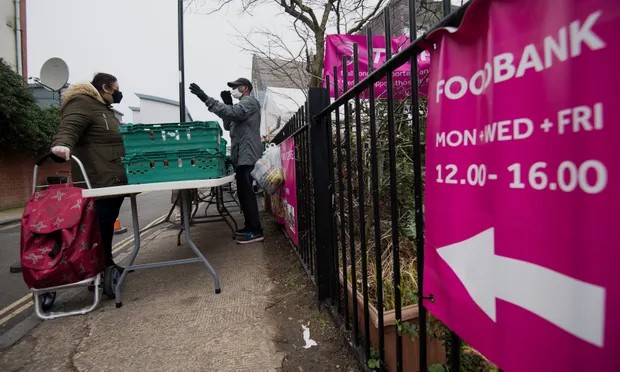British households were plunged into the Covid pandemic with lower savings, more debt and weaker welfare support than their French and German counterparts, according to analysis revealing how inequality increased the impact of the UK crisis.
High levels of income inequality also weakened the financial resilience of poorer households as the pandemic hit. The greater exposure of British households, revealed in an analysis by the Resolution Foundation thinktank, comes despite similar levels of average income with our European neighbours.
The typical working-age income level in the UK is £29,437 and £29,350 in France. However, the poorest fifth of working-age households in the UK are 20% poorer than their French counterparts, while the richest fifth are 17% richer in Britain.
Levels of UK welfare support were found to be poor in comparison with other large European nations, underlining the importance of protecting jobs through the government’s emergency furlough scheme rolled out last year.
For example, a single adult who had been out of work for two months, having previously earned two-thirds of the average wage, would see their benefit income total just 17% of their previous earnings. The same person would see a benefit replacement rate of 59% in Germany and 64% in France. The gap is narrowed when housing-related benefits are included, with the UK’s benefit replacement rate rising to 46%, compared with 59% in Germany and 68% in France.

Comments
No comments yet. Be the first to react!